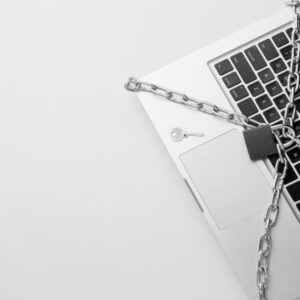Corporate Cybersecurity
Cybersecurity is one of the biggest challenges in today’s world, especially for companies dealing with sensitive data, financial transactions, critical operations, and essential services. With the rise of cyber attacks, organizations need to invest in effective and innovative solutions to protect their systems, networks, devices, and information.
But how can this be done strategically, aligned with business objectives and the company’s purpose? How can cybersecurity not only be a technical matter but also a competitive differentiator and a source of value?
In this article, we will present some of the key trends and practices in corporate cybersecurity, based on examples of companies standing out in this landscape. Follow along!

What is corporate cybersecurity?
Corporate cybersecurity is the set of measures, policies, processes, tools, and technologies aimed at protecting a company’s digital assets against internal or external threats. These assets may include:
- Personal, financial, commercial, or strategic data;
- Operating systems, applications, databases, or platforms;
- Networks, servers, computers, or mobile devices;
- Physical, logical, or virtual infrastructure.
Corporate cybersecurity involves not only technical aspects but also human, organizational, and legal considerations. Therefore, it requires an integrated and multidisciplinary approach that addresses risks, vulnerabilities, impacts, and solutions for each scenario.
Why is corporate cybersecurity important?
Corporate cybersecurity is important for various reasons, including:
- Preserving the company’s reputation and trust among customers, partners, suppliers, and employees;
- Ensuring the continuity and quality of services provided by the company to its stakeholders;
- Avoiding financial, operational, or legal losses resulting from cyber incidents;
- Complying with current norms and regulations on data protection and privacy;
- Fostering innovation and enhancing competitiveness within the market.
What are the key trends and practices in corporate cybersecurity?
Below, we will highlight some of the key trends and practices in corporate cybersecurity adopted by companies of different sectors and sizes. Check it out!
Artificial Intelligence: Artificial Intelligence (AI) is a technology that enables the creation of systems capable of learning, reasoning, and making decisions autonomously or with assistance. In corporate cybersecurity, AI can be used to:
Detect anomalies, suspicious behaviors, or malicious activities in real-time;
Examine extensive datasets to pinpoint patterns, trends, or connections;
Automate processes, tasks, or responses to optimize efficiency and effectiveness;
Generate insights, recommendations, or alerts to support decision-making.
An example of a company using AI in cybersecurity is IBM. The company developed Watson for Cybersecurity, a cognitive system that combines human knowledge with machine power to analyze millions of data sources and identify emerging threats.
Cloud Computing: Cloud computing is a model that allows access to computational resources (such as servers, storage, or software) over the internet, without the need for local installation or maintenance. In corporate cybersecurity, cloud computing can be used to:
Reduce costs and complexity of IT infrastructure;
Increase scalability and flexibility of services;
Improve performance and availability of systems;
Reinforce data security and privacy.

An example of a company using cloud computing in cybersecurity is Amazon. The company offers Amazon Web Services (AWS), a cloud service platform that includes security solutions, such as AWS Shield, a service that protects applications against distributed denial of service (DDoS) attacks.
Blockchain: Blockchain is a technology that enables the creation and management of distributed, encrypted, and immutable records of transactions or data. In corporate cybersecurity, blockchain can be used to:
Ensure the integrity, authenticity, and traceability of data;
Facilitate the exchange, sharing, and verification of information;
Prevent fraud, forgery, or tampering;
Promote transparency, reliability, and collaboration.
An example of a company using blockchain in cybersecurity is Microsoft. The company launched the Azure Blockchain Service, a service that allows creating and managing blockchain networks in the cloud, with security, governance, and interoperability features.
As you can see, corporate cybersecurity is a fundamental topic for companies aiming to stay secure, competitive, and innovative in the digital world. To achieve this, it is necessary to keep up with market trends and practices, as well as partner with specialized experts and choose solutions that fit your needs.
How are you taking care of your company’s cybersecurity? Share your experience in the comments!
Did you like this topic? See more content about: Cybersecurity
Source: nibusiness





